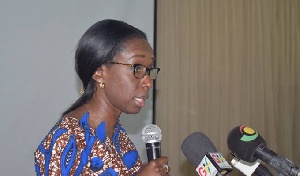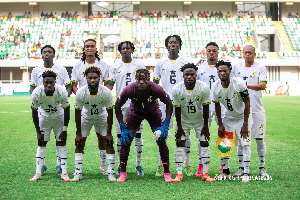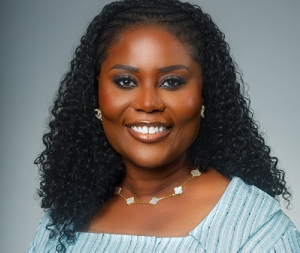The Food and Drugs Authority (FDA) has trained 39 Qualified Persons for Pharmacovigilance (QPPVs) to provide managers of the Pharmaceutical industry with up-to-date information on the need to establish pharmacovigilance systems to promote access to safe and effective medicines for local consumption and export.
Addressing stakeholders at the Pharmacovigilance and Patient Safety Symposium for Managers of the local Pharmaceutical Industry in Accra, CEO of the FDA, Delese Darko, underscored the need for a robust pharmacovigilance system for both branded and generic drugs irrespective of the age of the molecule.
“When industry manufactures anything, they are obliged to monitor the safety of medicines as the medicines are being used. Ghana is the first country to train people to do this work. We have decided that we will train people, give them the capacity to be able to do that, so Ghanaians who use medicines are safe and their safety is monitored,” she told B&FT in an interview.
Furthermore, the training programme was aimed at building capacity for designated staff to be responsible for the safety monitoring of products as envisaged in Section 125 of the Public Health Act, Act 851.
Pharmacovigilance involves the identification of safety issues with marketed medicinal products. Generally, generic medicines are similar to branded medicines but differences may arise based on excipients, formulation or commercial presentation and container closure systems, which could sometimes affect quality, efficacy and ultimately safety of the medicine.
A Director for Vigilance Risk Management of Medicines Divisions, Medicines and Healthcare Products Regulatory Agency(MHRA), Dr. June Raine, who was the guest speaker for the symposium lauded the training of QPPVs in Ghana and outlined the benefits of pharmacovigilance.
“It is vitally important to the local industry to resource a qualified person who will keep an oversight of the safety systems and also become very familiar with safety profile and any side effect of all the medicines they supply and all of this adds up to better information and better use of medicines for their undoubted benefits in improving health and prolonging life.”
She also added that a prolific and productive pharmaceutical industry is not just there for the health of the citizens of Ghana but represents the wealth of the economy. Ghana is the first country in sub-Saharan Africa to become a full member of the WHO Programme for International Drug Monitoring in November 2001 and also the first country in the world to start a formal training programme for QPPVs.
The FDA has already organised four of such training programmes since 2015, through which a total of 57 QPPVs have been trained and designated.
Health News of Monday, 9 October 2017
Source: thebftonine.com













